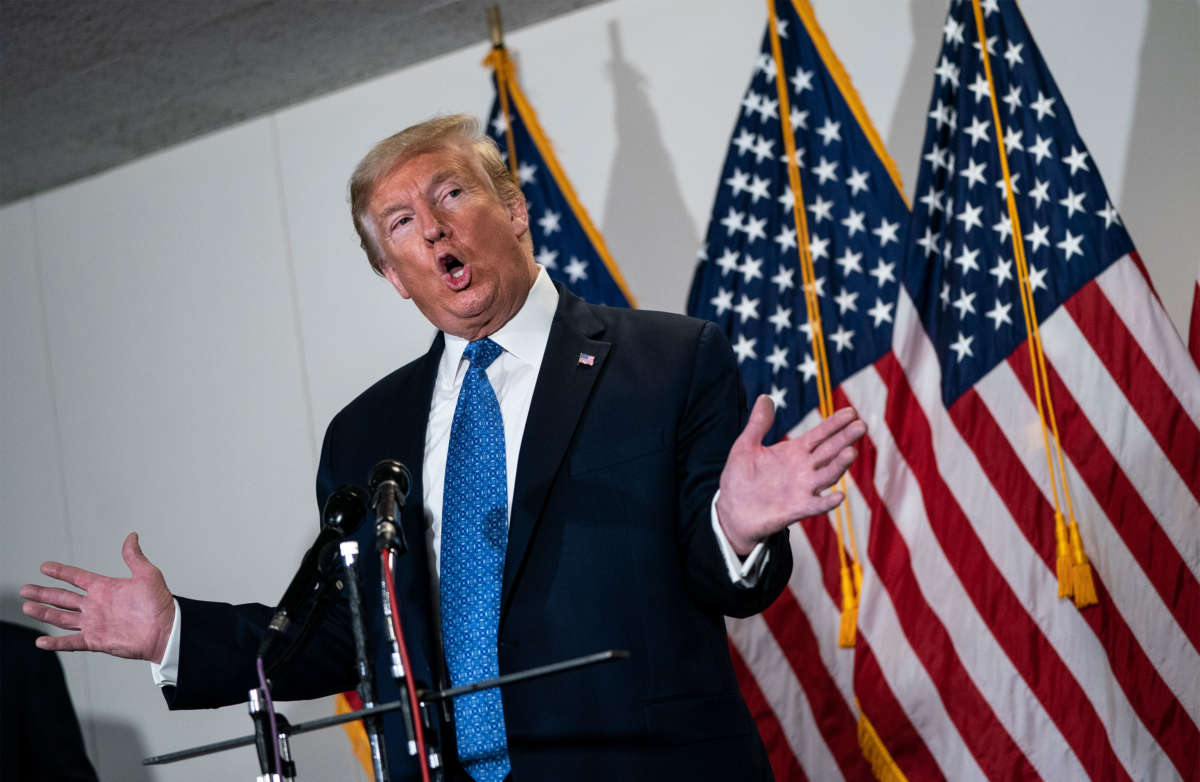As several states across the nation remove their shelter-in-place orders and begin to reopen businesses, there remains a looming possibility of a second wave of coronavirus cases.
Yet if that happens, President Donald Trump said this week he will not call for another round of similar measures to stem the spread of the disease.
Speaking to reporters while touring a Ford Motor factory in Michigan on Thursday, the president recognized the likelihood of a second wave of COVID-19 but rejected the idea of another round of stay-at-home rules to contain the spread of the virus if it happens.
“We are going to put out the fires. We’re not going to close the country,” Trump explained. “We can put out the fires. Whether it is an ember or a flame, we are going to put it out. But we are not closing our country.”
Most experts agree that the resurgence of COVID-19 is certain to happen. In an interview with The Washington Post this week, Anthony Fauci, a member of Trump’s coronavirus task force and the director of the National Institute for Allergy and Infectious Diseases, said it was “inevitable” that a second wave would come.
“The virus is not going to disappear. It’s a highly transmissible virus,” Fauci said. “At any given time, it’s some place or another. As long as that’s the case, there’s a risk of resurgence.”
While a second wave of COVID-19 is widely expected, there appears to be no consensus among experts on how to prepare for it. On the same day that Trump made his comments at the Ford factory, Robert Redfield, the director of the Centers for Disease Control and Prevention (CDC), did not rule out the possibility of implementing another round of shelter-in-place rules across the country if and when a second wave came about.
“I can’t guarantee — that’s kind of getting into the opinion mode, we have to be data-driven,” Redfield said. “What I can say is that we are committed to using the time that we have now to get this nation as overprepared as possible.”
Megan Ranney, an emergency physician and a researcher at Brown University, told members of Congress this week that the United States is not ready for another spike in coronavirus cases when it comes.
Ranney put it in blunt terms: “I do not think that we are currently prepared for a second wave,” she said.
Ranney pointed to a lack of financial support to address the needs of combating the disease.
“We still lack adequate science. I’m so thankful for the funding that you all have given to the [National Institutes of Health] and CDC, but that’s not enough, and we need more,” she added.
Most Americans seem to share her concerns. According to an NPR/PBS NewsHour/Marist poll published this week, 77 percent of American adults say that they worry about a second wave of coronavirus happening as more businesses across the country reopen. Less than a quarter of the American populace said they weren’t that concerned about it.
Join us in defending the truth before it’s too late
The future of independent journalism is uncertain, and the consequences of losing it are too grave to ignore. To ensure Truthout remains safe, strong, and free, we need to raise $50,000 in the next 9 days. Every dollar raised goes directly toward the costs of producing news you can trust.
Please give what you can — because by supporting us with a tax-deductible donation, you’re not just preserving a source of news, you’re helping to safeguard what’s left of our democracy.
